The Growing Gap Between our Physical and Social Technologies Discussants
From Santa Fe Institute Events Wiki
An SFI ACtioN Applied Topical Meeting
August 1 & 8, 2018
Santa Fe, NM
Discussants for Session One: August 1, 2018
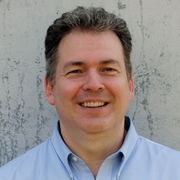
Reed College
Mark Bedau is a philosopher who works in the field of artificial life. Bedau teaches philosophy at Reed College in Portland. He is also the co-founder of the European Center for Living Technology and Visiting Professor, Ph.D. Program in Life Sciences: Foundations and Ethics, European School of Molecular Medicine. He is also the editor of the Artificial Life Journal.
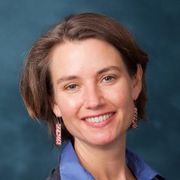
Santa Fe Institute & University of Michigan
Jenna Bednar's research is on the analysis of institutions, focusing on the theoretical underpinnings of the stability of federal states. Her most recent book, The Robust Federation demonstrates how complementary institutions maintain and adjust the distribution of authority between national and state governments. This book makes two theoretical contributions to the study of federalism's design. First, it shows that distributions suggested by a constitution mean nothing if the governments have no incentive to abide by them, and intergovernmental retaliation tends to be inefficient. The book's second contribution is that while no institutional safeguard is sufficient to improve the union's prosperity, institutions work together to improve compliance with the distribution of authority, thereby boosting the union's performance.
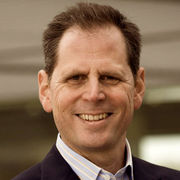
Santa Fe Institute &
University of Oxford
Eric Beinhocker is a Professor of Public Policy Practice at the Blavatnik School of Government, University of Oxford. He is also the Executive Director of the Institute for New Economic Thinking at the University’s Oxford Martin School. INET Oxford is a research center devoted to applying leading-edge interdisciplinary approaches to economic theory and public policy practice. INET Oxford researchers are working on issues ranging from financial system stability, to innovation and growth, economic inequality, and environmental sustainability. Beinhocker is also an External Professor at the Santa Fe Institute. Prior to joining Oxford, Beinhocker had an 18-year career at McKinsey & Company where he was a partner and held leadership roles in McKinsey’s Strategy Practice, its Climate Change and Sustainability Practice, and the McKinsey Global Institute.
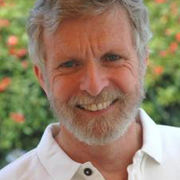
Santa Fe Institute &
Arizona State University
Robert Boyd is an evolutionary anthropologist whose research is focused on the evolutionary psychology of the mechanisms that give rise to, and shape human culture, and how these mechanisms interact with population dynamic processes to shape human cultural variation. Prior to his current position as Professor of the School of Human Evolution and Social Change at Arizona State University, Boyd taught at Duke University, Emory University, and the University of California, Los Angeles. He is considered a forerunner in the field of cultural evolution and uses a combination of mathematical modelling, laboratory experiments, and ethnographic fieldwork in his research.

Macquarie University
David Christian is by training a historian of Russia and the Soviet Union, but since the 1980s he has become interested in world history on very large scales. He has written on the social and material history of the 19th-century Russian peasantry, in particular on aspects of diet and the role of alcohol. In 1989, he began teaching courses on "Big History," surveying the past on the largest possible scales, including those of biology and astronomy.

Yale University
Molly Crockett is an Assistant Professor of Psychology at Yale University, where she is director of the Crockett Lab. Her team takes as a starting point Blaise Pascal's description of human beings as “the glory and scum of the universe”. The Crockett Lab seeks to understand this paradox by studying the cognitive building blocks of human morality, including social learning, impression formation, empathy, moral judgment and decision-making. Their approach integrates methods and insights from social psychology, behavioral economics, computational neuroscience and philosophy. They use behavioral experiments, computational modeling, functional brain imaging and field studies to investigate the social mind.
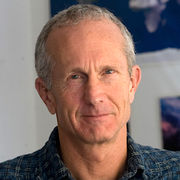
Santa Fe Institute &
University of Oxford
Doyne Farmer's current research is in economics, including agent-based modeling, financial instability and technological progress. He was a founder of Prediction Company, a quantitative automated trading firm that was sold to the United Bank of Switzerland in 2006. His past research includes complex systems, dynamical systems theory, time series analysis and theoretical biology. During the eighties he was an Oppenheimer Fellow and the founder of the Complex Systems Group at Los Alamos National Laboratory. While a graduate student in the 70’s he built the first wearable digital computer, which was successfully used to predict the game of roulette.
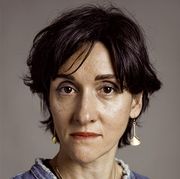
doppel
Fotini Markopoulou is a theoretical physicist interested in foundational mathematics and quantum mechanics. She was a faculty member at Perimeter Institute for Theoretical Physics and was an adjunct professor at the University of Waterloo. Markopoulou is also the co-founder of doppel, a wearable tech company that uses research in psychophysiology to create technology that changes how a user perceives, feels and behaves.

Northwestern University
Joel Mokyr conducts research on the economic history of Europe, and specializes in the period 1750-1914. His current research is concerned with the understanding of the economic and intellectual roots of technological progress and the growth of useful knowledge in European societies, as well as the impact that industrialization and economic progress have had on economic welfare. He is a Fellow of the American Academy of Arts and Sciences, the Econometric Society, and the Cliometric Society as well as the Italian Accademia dei Lincei and the Dutch Royal Academy. He has been the President of the Economic History Association, editor in chief of the Oxford Encyclopedia of Economic History, and a co-editor of the Journal of Economic History. His latest book is A Culture of Growth: Origins of the Modern Economy, published by Princeton University Press in 2016.
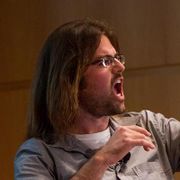
Plethora
Nick Pinkston is the founder of Plethora, a rapid manufacturing service with tools that let you design for manufacturability inside your CAD software, and then let you make them using a flexible manufacturing system. Previously, Nick started CloudFab: the world's first manufacturing-as-a-service API, and also HackPittsburgh: a collective workshop for the makers of Pittsburgh. Nick's mission is to make developing hardware as easy software through better tools. He also organizes the SF Hardware Startup Meetup and is heavily involved in building the hardware movement broadly.
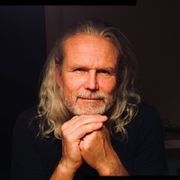
Santa Fe Institute &
University of Southern Denmark
Steen Rasmussen's main scientific effort is to explore, understand and construct minimal living processes through bottom up assembly of protocells in the lab and to explore the relationships between living processes and evolutionary learning in different systems. Another line of research is to explore how living and intelligent technologies increasingly transform society and what it means to be human. Due to these activities he has frequently consulted on science and technology issues for the European Commission, the Danish Parliament, the German Reichstag, and the US Congress.
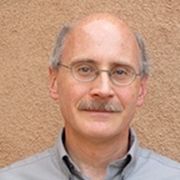
University of New Mexico
Andy Shreve is a professor at the University of New Mexico and the Director of the Center for Biomedical Engineering. Andy holds a PhD in Physical Chemistry from Cornell University. Following postdoctoral training, he worked at Los Alamos National Laboratory for 18 years and served in various scientific and technical leadership positions, most recently within the Center for Integrated Nanotechnologies (CINT), a Department of Energy (DOE) Nanoscience Research Center. His research interests include development and applications of thin-film nanostructured self-assembled materials and biomimetic membrane architectures, self-assembled materials, bio-inspired materials, materials for alternative energy applications, biosensor technology, spectroscopic studies of protein structure and dynamics, applications of spectroscopic techniques to the study of electron and energy transfer processes, theory of electron and energy transfer, experimental and theoretical development of spectroscopies.
Discussants for Session Two: August 8, 2018

Santa Fe Institute &
University of Oxford
Eric Beinhocker is a Professor of Public Policy Practice at the Blavatnik School of Government, University of Oxford. He is also the Executive Director of the Institute for New Economic Thinking at the University’s Oxford Martin School. INET Oxford is a research center devoted to applying leading-edge interdisciplinary approaches to economic theory and public policy practice. INET Oxford researchers are working on issues ranging from financial system stability, to innovation and growth, economic inequality, and environmental sustainability. Beinhocker is also an External Professor at the Santa Fe Institute. Prior to joining Oxford, Beinhocker had an 18-year career at McKinsey & Company where he was a partner and held leadership roles in McKinsey’s Strategy Practice, its Climate Change and Sustainability Practice, and the McKinsey Global Institute.
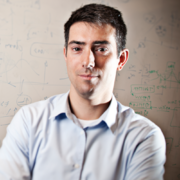
Indiana University
Johan Bollen is a professor at the Indiana University School of Informatics and Computing. He was formerly a staff scientist at the Los Alamos National Laboratory from 2005-2009, and an Assistant Professor at the Department of Computer Science of Old Dominion University from 2002 to 2005. He obtained his PhD in Experimental Psychology from the Vrije Universiteit Brussel (VUB) in 2001. He has published more than 75 articles on computational social science, social media analytics, informetrics, and digital libraries. His research has been funded by the NSF, DARPA, IARPA, EDA, NASA, and Andrew W. Mellon Foundation.

Santa Fe Institute &
University of Oxford
Doyne Farmer's current research is in economics, including agent-based modeling, financial instability and technological progress. He was a founder of Prediction Company, a quantitative automated trading firm that was sold to the United Bank of Switzerland in 2006. His past research includes complex systems, dynamical systems theory, time series analysis and theoretical biology. During the eighties he was an Oppenheimer Fellow and the founder of the Complex Systems Group at Los Alamos National Laboratory. While a graduate student in the 70’s he built the first wearable digital computer, which was successfully used to predict the game of roulette.

University of Oxford
Carl Benedikt is Co-Director of the Oxford Martin Programme on Technology and Employment at the Oxford Martin School, and Economics Associate of Nuffield College, both University of Oxford. He is also a Senior Fellow of the Programme on Employment, Equity and Growth at the Institute for New Economic Thinking in Oxford, and the Department of Economic History at Lund University. His research focuses the transition of industrial nations to digital economies, and subsequent challenges for economic growth, labour markets and urban development. To secure impact for his research outside academia, Carl Benedikt is widely engaged in policy, advisory and media activities. In partnership with Citigroup, he works to help global leaders navigate the rapidly changing world economy. Over the course of his career, he has also worked with governments, such as the Digitalisation Commission of the Swedish Government, and acted as a Specialist Advisor to Digital Skills Select Committee at the House of Lords. He has further engaged as an external consultant to various international organisations (e.g. OECD and UN agencies) and leading corporations (e.g. Deloitte and PwC).
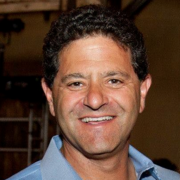
Second Avenue Partners
Nick Hanauer is one of the most successful entrepreneurs, investors, and business executives in Washington State. Hanauer is a co-founder of the Seattle-based venture capital firm Second Avenue Partners. An influential civic and political activist, Hanauer founded Civic Ventures, an organization devoted to ideas, policies, and actions that catalyze significant social change, in 2015. Hanauer has managed, founded, or financed 37 companies across a broad range of industries, creating an aggregate market value of tens of billions of dollars. He was the first non-family investor in Amazon.com and served at Amazon as a board advisor for 5 years. He also founded Aquantive Inc., a global leader in digital advertising (purchased by Microsoft in 2007 for $6.4 billion.) Other companies he’s launched, funded, or managed include Insitu (purchased by Boeing for $400 million), Market Leader (purchased by Trulia in 2013 for $350 million), Marchex, Newsvine, Real Self, Modumetal Inc., Seeq Corp, Flexe, Juno Therapeutics, and Seattle Bank. Hanauer got his start in the family business, Pacific Coast Feather Company, a national leader in home textiles. Today, Hanauer devotes a majority of his time to a broad portfolio of civic and philanthropic activities. As a national leader on policy issues related to income inequality and the future of capitalism, his advocacy and policy initiatives have helped shape the global economic conversation.
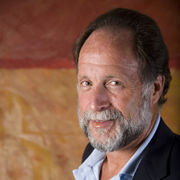
Harvard University
Ricardo Hausmann is Director of Harvard's Center for International Development and Professor of the Practice of Economic Development at the Kennedy School of Government. He also teaches a capstone course on the MPAID program. Previously, he served as the first Chief Economist of the Inter-American Development Bank (1994-2000), where he created the Research Department. He has served as Minister of Planning of Venezuela (1992-1993) and as a member of the Board of the Central Bank of Venezuela. He also served as Chair of the IMF-World Bank Development Committee. He was Professor of Economics at the Instituto de Estudios Superiores de Administracion (IESA) (1985-1991) in Caracas, where he founded the Center for Public Policy. His research interests include issues of growth, macroeconomic stability, international finance, and the social dimensions of development. He holds a PhD in economics from Cornell University.
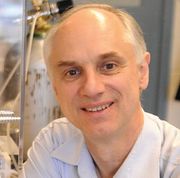
Arizona State University
Klaus Lackner is the director of Center for Negative Carbon Emissions and professor at the School of Sustainable Engineering and the Built Environment of the Ira A. Fulton Schools of Engineering, Arizona State University. Lackner’s research interests include closing the carbon cycle by capturing carbon dioxide from the air, carbon sequestration, carbon foot-printing, innovative energy and infrastructure systems and their scaling properties, the role of automation, robotics and mass-manufacturing in downscaling infrastructure systems, and energy and environmental policy.
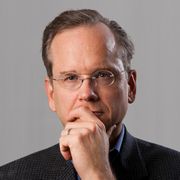
Harvard University
Lawrence Lessig is the Roy L. Furman Professor of Law and Leadership at Harvard Law School. Prior to rejoining the Harvard faculty, Lessig was a professor at Stanford Law School, where he founded the school’s Center for Internet and Society, and at the University of Chicago. He clerked for Judge Richard Posner on the 7th Circuit Court of Appeals and Justice Antonin Scalia on the United States Supreme Court. Lessig serves on the Board of the AXA Research Fund, and on the advisory boards of Creative Commons and the Sunlight Foundation. He is a Member of the American Academy of Arts and Sciences, and the American Philosophical Association, and has received numerous awards, including the Free Software Foundation’s Freedom Award, Fastcase 50 Award and being named one of Scientific American’s Top 50 Visionaries.

doppel
Fotini Markopoulou is a theoretical physicist interested in foundational mathematics and quantum mechanics. She was a faculty member at Perimeter Institute for Theoretical Physics and was an adjunct professor at the University of Waterloo. Markopoulou is also the co-founder of doppel, a wearable tech company that uses research in psychophysiology to create technology that changes how a user perceives, feels and behaves.

Santa Fe Institute &
University of Southern Denmark
Steen Rasmussen's main scientific effort is to explore, understand and construct minimal living processes through bottom up assembly of protocells in the lab and to explore the relationships between living processes and evolutionary learning in different systems. Another line of research is to explore how living and intelligent technologies increasingly transform society and what it means to be human. Due to these activities he has frequently consulted on science and technology issues for the European Commission, the Danish Parliament, the German Reichstag, and the US Congress.

